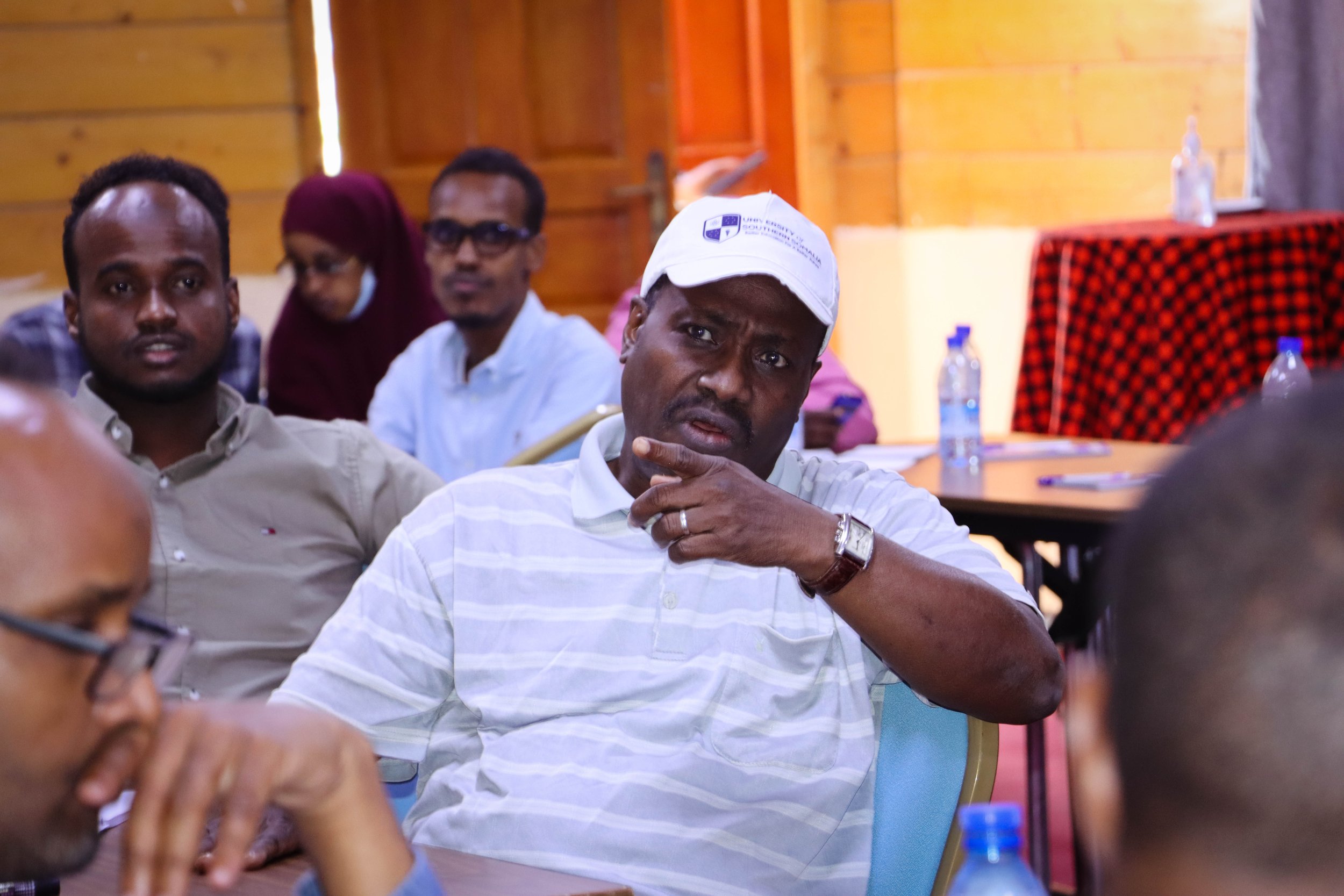Towards Transparent Aid: Shaqodoon and Partners Forge New Paths in Accountability
Mogadishu, Somalia – In a country where aid delivery is often hindered by conflict and logistical challenges, Shaqodoon and the Somali NGO Consortium are pioneering a new approach to ensuring that humanitarian assistance reaches those who need it most. Over a transformative two-day Design Thinking Workshop, held in Mogadishu, humanitarian professionals, government representatives, and civil society members came together to address one of Somalia’s most persistent issues: aid diversion.
Despite ongoing efforts, aid diversion remains a significant obstacle in Somalia. The Humanitarian Country Analysis for Somalia 2024 by the Swedish International Development Cooperation Agency (SIDA) highlights that while digital platforms and community-based monitoring systems have improved transparency, challenges persist—particularly in areas with limited state presence and ongoing conflict. “The introduction of digital platforms and community-based monitoring systems has shown promise in increasing transparency and reducing the instances of aid misallocation,” the report notes, “but challenges remain, particularly in areas with limited state presence and ongoing conflict” (SIDA, 2024).
Recognizing the need for robust solutions, Shaqodoon and its partners organized the workshop to equip participants with practical tools and strategies for enhancing transparency and accountability in aid distribution. Ahmed Omer, Shaqodoon’s Regional Director, opened the event with a powerful message: “We need to ensure that aid is not only delivered but is delivered fairly and effectively. Transparency and accountability are the cornerstones of trust, and trust is essential in humanitarian work.”
Over two days, participants engaged in dynamic activities designed to tackle complex issues in aid delivery. The Challenge Mapping activity, for instance, pinpointed critical issues such as manipulation of beneficiary lists, corruption, and lack of community involvement. By dissecting these challenges, participants gained a deeper understanding of the systemic barriers to effective aid distribution.
In the Stakeholder Mapping session, the roles and influence of different actors—from local households to federal agencies—were analyzed, providing a comprehensive view of the humanitarian landscape. This exercise was instrumental in identifying key stakeholders whose actions directly impact the transparency and accountability of aid programs.
One of the most impactful moments of the workshop came during the Empathy Mapping exercise, where participants explored the perspectives of various personas involved in the aid process, such as beneficiaries, government officials, and community leaders. By delving into the thoughts and feelings of these stakeholders, participants were able to develop more culturally sensitive and effective approaches to aid delivery.
The "How Might We" activity then challenged participants to transform identified problems into innovative solutions. Ideas ranged from implementing community-driven verification processes to enhancing collaboration between government agencies and NGOs. These solutions were not just theoretical; they were actionable plans that participants committed to implementing in their respective organizations.
A highlight of the workshop was a presentation session where organizations shared their experiences with accountability mechanisms. The International Organization for Migration (IOM) introduced its Interoperable Aggregated Community Feedback Mechanism (CFM) Model, which integrates feedback from various agencies into a centralized system, improving coordination and decision-making.
Shaqodoon, in turn, presented IMAAQAL, a mobile and web-based feedback platform tailored for Somalia’s unique context. IMAAQAL connects beneficiaries, contractors, and vendors with government institutions and humanitarian agencies, enabling them to voice grievances, suggestions, and inquiries through SMS, USSD, and IVR. “This platform is a game-changer,” said Ahmed Omer. “It empowers communities to hold organizations accountable and ensures that their voices are heard.”
The workshop concluded with participants leaving not only with a deeper understanding of the challenges at hand but also with a renewed commitment to implementing the solutions discussed. The formation of a network of committed organizations and the development of actionable plans signal a promising step forward in the fight against aid diversion and misallocation.
Building on this momentum, Shaqodoon and the Somali NGO Consortium are dedicated to ensuring that the strategies and insights developed during the workshop are put into practice. As Somalia continues to navigate complex humanitarian challenges, these efforts will be crucial in safeguarding the integrity of aid programs and ensuring that assistance reaches those who need it most.
This workshop marks a significant milestone in the collective efforts to drive positive change and strengthen transparency and accountability within the humanitarian sector in Somalia. It is a testament to what can be achieved when communities, organizations, and governments come together with a shared vision of a more equitable and effective humanitarian system.









































































